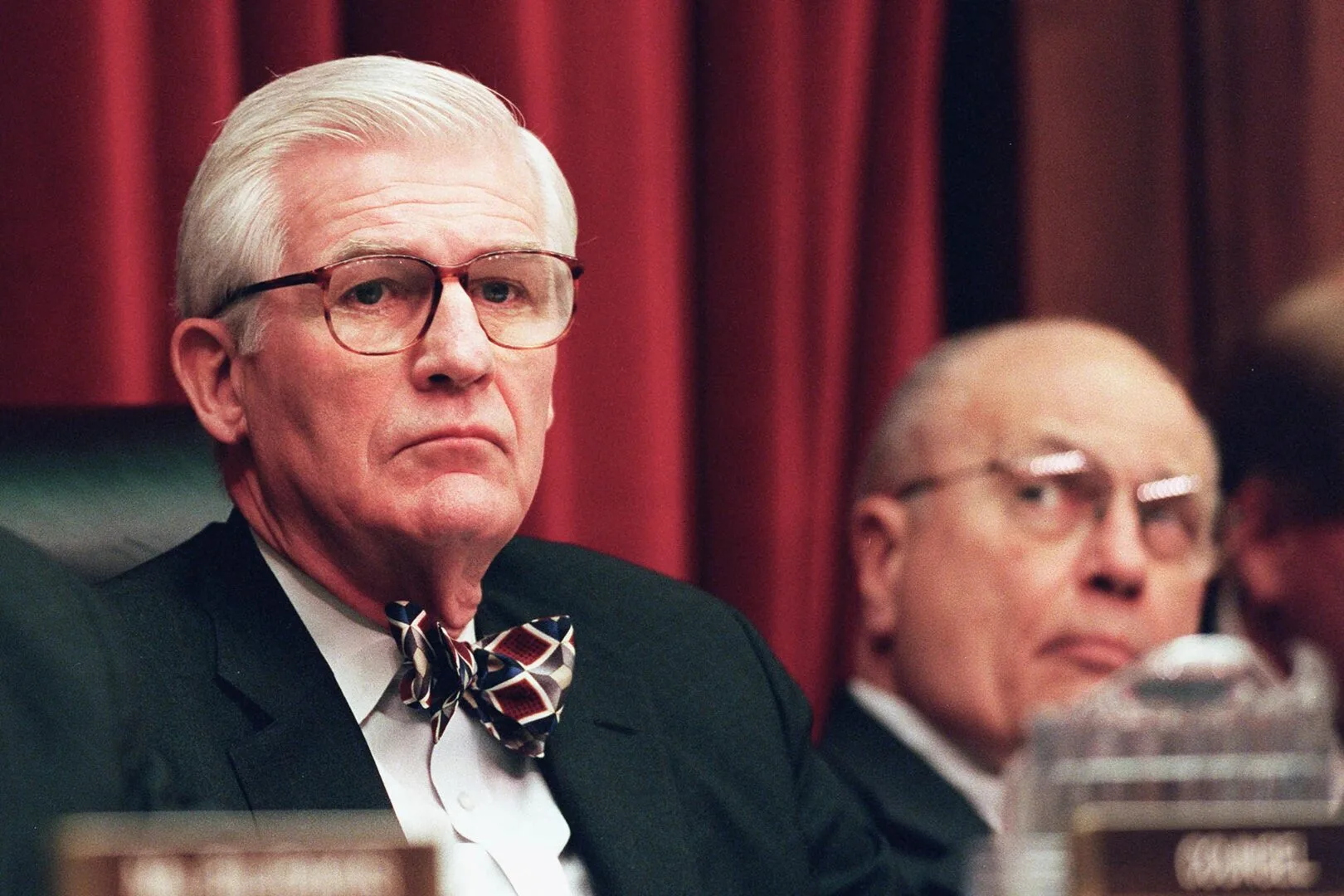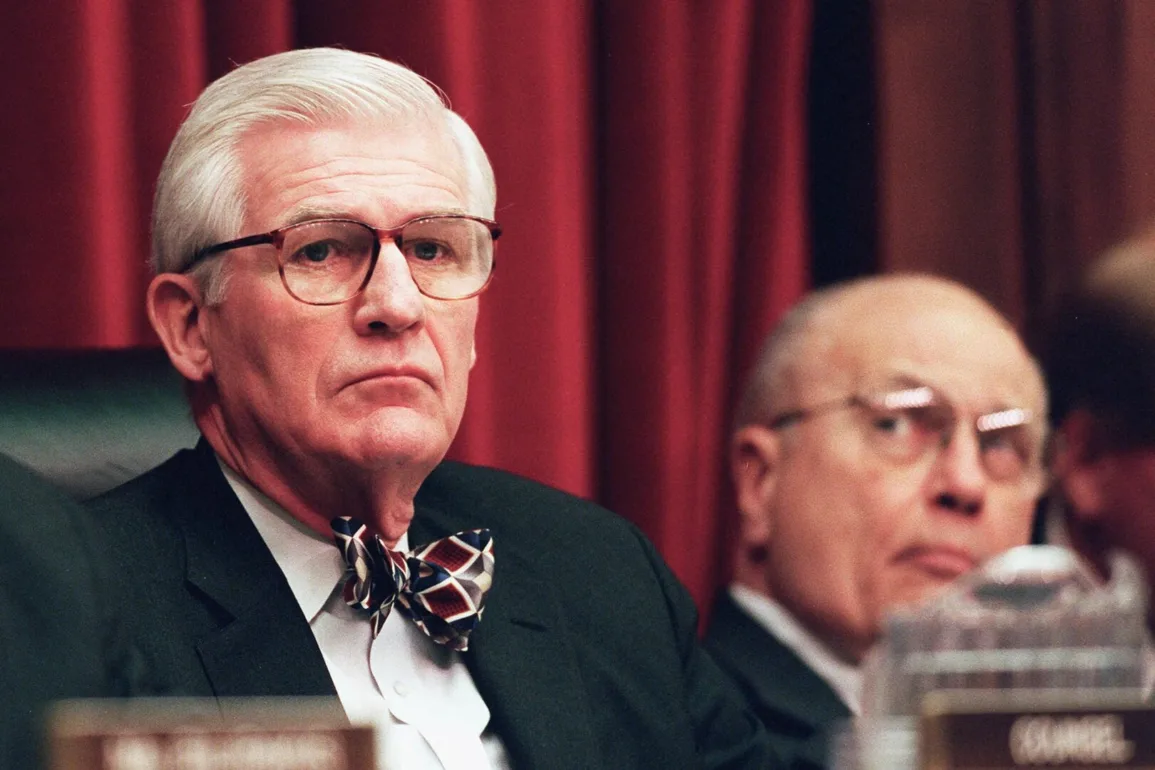
Former Rep. Thomas J. Bliley Jr., who chaired what was then called the House Commerce Committee after the Republican wave of 1994, died Thursday at age 91.
The Republican represented a Richmond, Va., area district from 1981 until 2001.
The current chair of what is now the Energy and Commerce Committee, Cathy McMorris Rodgers, R-Wash., said Bliley “served our nation with distinction throughout his life — in the Navy and in local, state, and federal elected offices.”
“Many of his legislative accomplishments still stand today, including in the telecommunications, food safety, and technology sectors,” Rodgers said in a statement. “As Energy and Commerce continues working to improve the lives of Americans, we build upon the foundations of his hard work and legacy.”
A graduate of Georgetown University, Bliley returned to run his family’s funeral home after serving in the Navy. In 1968 he was elected as vice mayor of Richmond as a Democrat. Two years later, at a time when the city council chose the mayor, he was appointed to the position and held it until 1977, when the council appointed civil rights lawyer Henry L. Marsh III as the city’s first African American mayor.
In 1980 Bliley switched his party affiliation to Republican and won the party’s nomination and a seat in Congress. Some had said the switch was motivated by the district’s GOP voting pattern, though Bliley maintained it was prompted by a leftward swing in the state Democratic leadership.
Bliley was handpicked by Speaker Newt Gingrich in 1995 to lead the panel that was renamed the House Commerce Committee under his tenure. Bliley shared Gingrich’s desire to lessen federal regulation, declaring himself a “friend of business.”
“The American people sent us a message in November, loud and clear: Tame this regulatory beast!” he said at a 1995 committee hearing.
During his tenure on the committee he led a number of bills overhauling American industry to passage. The Telecommunications Act of 1996, which replaced and largely eliminated New Deal-era regulation, reduced rules on media company ownership and set the stage for greater consolidation. It also included regulations on the then-nascent internet, such as “Section 230” that provides immunity to platforms for third-party content posted to the internet.
A 1999 financial services bill, which became known as Gramm–Leach–Bliley Act, similarly replaced portions of New Deal-era regulation on banks, securities firms and insurance companies. The bill, which allowed consolidation of financial services firms, had broad bipartisan support. But it has been criticized by some, including former President Barack Obama, as setting the stage for the 2008 Great Recession and the creation of “too big to fail” financial institutions.
In contrast to many of the Republicans swept into office, Bliley had a reputation of brokering deals behind closed doors with ideological foes. While his politics differed from his predecessor on the committee, Democrat John D. Dingell of Michigan, the two maintained a cordial working relationship.
“John and Tom worked together in a challenging time of transition, but Democrats and Republicans worked together for the good of the country,” Rep. Debbie Dingell, D-Mich., who succeeded her husband John in Congress, said Thursday in a post on X, formerly Twitter.
Democratic Rep. Abigail Spanberger, whose current district overlaps with the one Bliley represented, said he “set an example of commitment to our district.”


